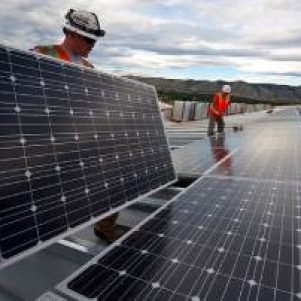The Energy Savings Certificate System (ESV or CAE System in Spain) was established in Spain to meet the EU’s energy efficiency requirements outlined in Directive 2012/27/EU. This directive aimed to encourage new energy savings through energy efficiency projects This system aims to facilitate investment in energy-efficient technologies and stimulate a market in this sector.
Establishment of the CAE System in Spain
Order TED/815/2023, dated July 18, established the CAE System, partially implementing Royal Decree 36/2023, dated January 24. This decree regulates the Energy Savings Certificate System (RD 36/2023) as outlined in Law 18/2014 of 15 October, which approved urgent measures for growth, competitiveness, and efficiency.
With the approval of the CAE System, obligated parties must make financial contributions to the National Energy Efficiency Fund (FNEE). This activity has created a market where obligated parties can either generate the necessary savings for verification or directly purchase Energy Savings Certificates (CAE) from other obligated or delegated parties.
Role of the Delegated Party
Given the nature of their business, achieving energy savings is often not aligned with the primary economic activities of most obligated parties. The role of the delegated party was to simplify their compliance with energy-saving obligations. This delegated party can be accredited by the National Coordinator of the CAE System public or a private legal entity that assumes, wholly or partially, the responsibility for achieving energy savings on behalf of one or more obligated parties.
To execute the delegation of energy savings efforts and the settlement of CAE on behalf of the obligated party, the delegated party must demonstrate compliance with their CAE settlement commitments during the delegation period, as stipulated in RD 36/2023. A delegation agreement formalizes the delegation.
The Delegation Agreement in Spain
The delegation agreement allows obligated parties to transfer their energy-saving and settlement obligations to delegated parties. This agreement must be formalized and registered under the established regulations.
Particularities of the Delegation Agreement in Spain
Article 10 of RD 36/2023 establishes the following specifics for the delegation agreement:
- The delegation agreement must include at least one clause stating that the individual final energy-saving obligations established by ministerial order will remain with each obligated party that has made the delegation.
- For multi-year agreements, the delegated savings amounts for each obligated party must be detailed for each year.
- The delegated party must inform the National Coordinator of the CAE System about signing delegation agreements within fifteen (15) days of concluding them. This notification must include:
- The fiscal identification and corporate name of the obligated party
- The specified amount of new energy savings to be credited through CAE, expressed in kilowatt-hours (kWh)
- The calendar years and the corresponding annual delegated savings amounts
- The duration of the delegation
- The percentage of the delegated savings amount in each year relative to the obligated party’s total energy-saving obligation for that year.
The National Coordinator has twenty (20) days to decide and notify the decision regarding the delegated party’s capacity to assume the delegation as stated in the delegation agreement. If there is no notification, the delegated party can undertake the delegation without prejudice to the obligation to issue an express resolution confirming this decision, following Article 24 of Law 39/2015 of October 1.
If you need additional information regarding the delegation agreement within the CAE System in Spain,





